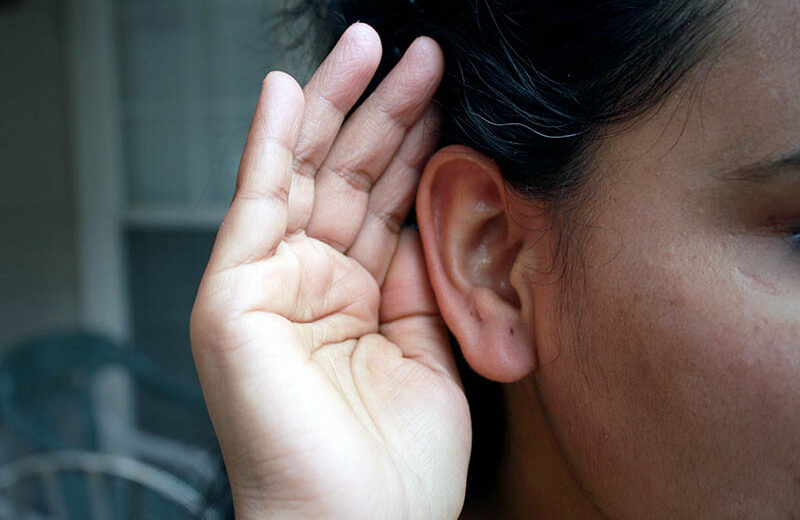The experience of hearing loss can be complex and challenging to comprehend. It does not manifest as a simple on or off switch but progresses through mild, moderate, and extreme stages. Each stage signifies a distinct level of hearing difficulty, necessitating a tailored approach to management. Understanding these stages allows for better comprehension of the condition and appropriate responsive measures. Let us delve into the stages of hearing loss to elucidate this information.
Stages of Hearing Loss: The Complexity of Hearing Loss
Have you ever considered the intricate workings of the human ear? It is a remarkable organ, capable of processing sound waves into signals our brains can comprehend. This process operates seamlessly, often without us fully grasping its complexity until confronted with hearing impairment. Hearing loss is not an abrupt occurrence but rather a gradual progression. By familiarizing yourself with the various stages of hearing loss and their impact on auditory function, you can make knowledgeable conclusions concerning your hearing health.
The Significance of Early Detection of Hearing Loss
Early identification of hearing loss allows for prompt management, potentially involving measures to preserve remaining hearing or considering solutions such as hearing aids to enhance effective communication. Taking action early improves the likelihood of mitigating further hearing deterioration.
Furthermore, early detection allows individuals to adapt to alternative methods of communication and lifestyle, facilitating a smoother adjustment and reducing the impact on daily routines and relationships. Emphasizing the significance of early detection extends beyond preserving hearing ability by encompassing the maintenance of overall well-being.
Typical Indications of Mild Hearing Loss
Signs of hearing difficulty in adults may include:
• Challenges with understanding speech in noisy environments
• Frequently requesting repetitions from others
• Struggling to follow conversations in group settings
Identifying these signs early allows for prompt intervention, which can help mitigate further deterioration, enhance communication abilities, and preserve overall well-being. We recommend that adults undergo hearing assessments every three years, starting at age 20. For individuals over 50 or those experiencing changes in their hearing, annual check-ups are advisable.
Signs of Moderate Hearing Loss
As hearing loss progresses from the early stage to moderate, it becomes more pronounced. Conversations may become more challenging to follow, particularly with background noise, as certain sounds and frequencies become more difficult to discern. Individuals experiencing moderate hearing loss may encounter difficulty discerning the phone ring or comprehending television programming at standard volume levels. These obstacles can significantly impede daily activities and affect one’s quality of life. Therefore, it is imperative to promptly seek consultation with an audiologist upon noticing such changes in hearing abilities.
Severe Hearing Loss Symptoms
As hearing loss progresses to a severe stage, the associated symptoms become more pronounced and can significantly impact daily life. Recognizing these symptoms is pivotal for appropriately managing one’s hearing health. Severe hearing loss can manifest in diverse ways. Individuals may experience difficulty hearing conversations without a hearing aid or miss out on crucial sounds such as doorbells, ringing phones, or car horns. If these signs are recognizable, seeking consultation with an audiologist is vital. Acknowledging the issue is the initial step toward finding a resolution.
Treatment Options
Lifestyle adjustments can significantly contribute to managing hearing loss in the initial stages. These adjustments may involve avoiding loud noises and using protective equipment, such as earplugs, in environments with elevated noise levels. Additionally, routine check-ups with an audiologist are essential during this phase to monitor changes in one’s hearing capabilities.
As the progression of hearing loss enters moderate stages, individuals may encounter increasing challenges in comprehending speech and engaging in conversations. This is where the significance of hearing aids comes to the fore. These devices are specifically engineered to enhance sounds across various frequencies, facilitating individuals with moderate hearing loss to differentiate speech and other ambient sounds. In-the-canal (ITC) or in-the-ear (ITE) hearing aids are frequently recommended for moderate cases due to their ability to strike a balance between amplification and subtlety.
Individuals experiencing more pronounced hearing impairment may find behind-the-ear (BTE) hearing aids a more effective solution. These devices can deliver higher amplification levels, rendering them suitable for individuals with profound hearing loss. By containing the amplification components within a discreet casing positioned behind the ear, BTE hearing aids can accommodate advanced sound processing technology while preserving comfort and user-friendliness. A comprehensive discussion about these treatment alternatives with a qualified professional is essential. This will enable you to determine the most suitable solution based on your circumstances. While there is no universal remedy for managing hearing loss, numerous specialized options are available for each stage of the condition, ensuring that individuals have access to the appropriate treatment for their needs.
Familiarity is Key
Navigating through the various stages of hearing loss can be likened to driving through an unfamiliar city. In the absence of a map or GPS, one may experience a sense of disorientation and being overwhelmed. However, with the appropriate guidance—comprehending each stage and understanding what to anticipate—one can confidently steer through this unfamiliar terrain. Understanding acts as a roadmap in this context, aiding in gaining insight into one’s current position, future direction, and the most effective means to manage the journey ahead. Comparable to an experienced traveler who learns to adapt and derive satisfaction from their journey, an individual can also find empowerment and resilience in comprehending their progression through the stages of hearing loss.





